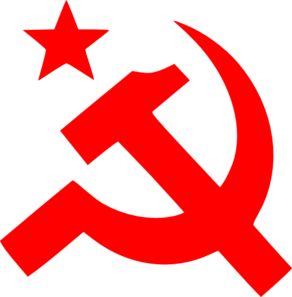
THE election campaign of the BJP led by Prime Minister Narendra Modi is resorting to open appeals based on religion. It has made the Ram temple an election issue and dubbed some of the opposition parties as being against the temple and Lord Ram. This is a blatant violation of the model code of conduct and some of the speeches should come under the purview of relevant provisions of the Indian Penal code for inciting hatred and inflaming religious sentiments.
The chief offender has been Narendra Modi himself. One has to go through some of his speeches at election rallies to see how the open appeal to religious sentiments is being orchestrated by the supreme leader of the ruling party.
In a speech at Nawadah, Bihar on April 7, Modi accused, “The Congress and the RJD of making every effort to prevent the grand temple being built at Ayodhya”. He said that they boycotted the ‘pran pratishtha’ and asked why this enmity to Lord Ram? He also reminded the audience that “Ram Navami is approaching” and asked people “not to forget who committed sin”? This is nothing but an incitement playing on the religious sentiments of people and making false accusations against the opposition parties of being anti-Ram. It is not only a gross violation of the model code of conduct, but qualifies for a FIR being lodged for inciting hatred.
In an earlier speech at Ajmer in Rajasthan on April 6, Modi maligned the Congress by falsely accusing them of expelling its members who attended the consecration ceremony at Ayodhya and then proceeded to mischievously imply that those who were against the temple consecration would oppose the forthcoming Ram Navami celebrations which is to take place just two days before the first phase of polling on April 19. This is blatant incitement of religious sentiments against a political opponent.
Modi followed up these speeches with another one at Pilibhit in Uttar Pradesh on April 9, wherein he attacked the Congress and the Samajwadi Party for not participating in the consecration ceremony of the temple at Ayodhya. He declared this as an insult to Lord Ram (Ram ka apmaan). He went on to charge that “these people of the INDI alliance have long harboured a hatred for the Ram temple”. Here again, Modi has sought to rouse religious passions by accusing the two parties of insulting Lord Ram. He has indulged in hate speech by alleging that the INDIA bloc nurtures a “hatred for the Ram temple”.
These are just some samples of the type of speeches Modi has been indulging in. Ram and the Ram temple are being consistently used to rally support for the BJP in the general election campaign. For instance, in a roadshow held in Ghaziabad in which Modi participated on April 6, songs were played in which lyrics were like “Jo Ram ko laye hain, hum unko layenge” (we will bring to power those who have brought Ram to us). A slogan being shouted was “Bharat ka bachha bachha Jai Shriram bolega”. The religious slogan, ‘Jai Sri Ram’ has become the political motif of the BJP.
Other BJP leaders like Amit Shah and Adityanath are also making provocative speeches in the same vein, but the tone is being set by the prime minister himself.
The model code of conduct states that: “There shall be no appeal to caste or communal feelings for securing votes. Mosques, Churches, Temples or other places of worship shall not be used as forum for election propaganda.”
The speeches of Modi appeal to people to vote for those who have built and consecrated the Ram temple at Ayodhya. Moreover, it is not just a temple being used as a forum for election propaganda, but the Ram temple itself becoming the central issue of BJP’s election propaganda.
The CPI(M) has lodged a complaint against some of these speeches of Prime Minister Modi to the Election Commission. It may be recalled that during the 2019 Lok Sabha elections complaints against some of the speeches of Narendra Modi and Amit Shah to the Election Commission were not acted upon. Later it was revealed that there was dissent by one of the commissioners on the decision not to take any action. That commissioner, Ashok Lavasa, subsequently resigned after his wife and son were interrogated and harassed by the Income Tax authorities.
This time the Election Commission will be on test. After the appointment of two election commissioners, on the eve of the election announcement, under the provisions of the controversial Election Commissioners Appointment Act, it is for the Election Commission to prove that it is truly independent and not biased towards the executive.
The dominant Hindutva discourse with its communal agenda is being sought to be normalised by the ruling party and the prime minister. The Election Commission must not succumb to such pressures. It must firmly intervene to thwart any form of electioneering which violates the model code of conduct and vitiates the atmosphere for a free and fair poll.
(April 10, 2024)


